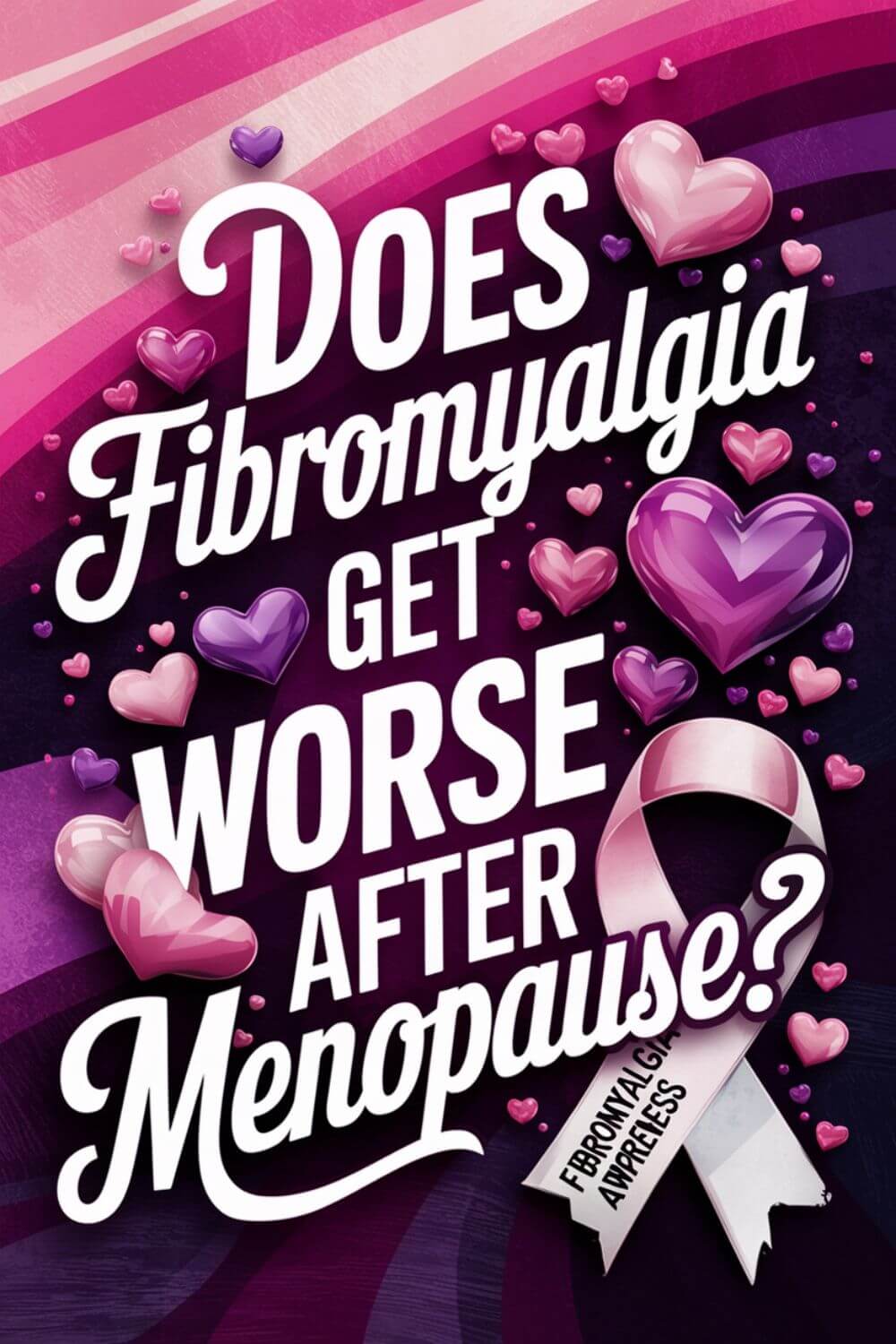Does Fibromyalgia Get Worse After Menopause?
For many women, including my lovely wife, menopause marks a profound transition, often reshaping the symptoms of chronic illnesses. For my wife, endometriosis seems to ease whereas fibro does not. So, does fibromyalgia get worse after menopause?
While menopause may reduce estrogen levels, potentially easing endometriosis symptoms, fibromyalgia often presents new challenges with increased flare-ups and heightened pain, often flaring more fiercely, and amplifying chronic pain and fatigue.
When I married my wife in 2012, I vowed to love her in sickness and health, but neither of us anticipated just how heavy those words would become. This is not just a medical battle — it is an emotional, exhausting journey that demands strength, patience, and a resolve that sometimes feels impossible.
Read on to understand this battle and discover hope in navigating the changing landscape of fibromyalgia through menopause...
How Fibromyalgia Get Worse After Menopause?
Menopause is often seen as a phase of change, but for women with fibromyalgia, it becomes something far more daunting—a storm that can deepen pain and shatter the fragile calm they fight so hard to maintain. I have watched my wife, the woman I love more than life itself, endure this storm every single day. Fibromyalgia is relentless. It doesn’t pause for a breath, and when menopause adds its own turbulence, the impact can be crushing.
I’ve seen her collapse from exhaustion after the simplest tasks. I’ve seen the fear in her eyes when her body won’t respond the way it once did. There are nights when sleep is impossible because her pain becomes a cage, and every breath feels like a battle. Menopause has only heightened these struggles, turning flares into infernos that rage through her body without mercy.
Her muscles burn, her joints ache, and every nerve feels like a live wire. As a husband, I can’t take that pain away, but I am here—to listen, to hold her, to remind her that she isn’t alone, even when it feels like the world has forgotten her struggles.
Fibromyalgia doesn’t just break down the body; it chips away at hope, at strength, and at the belief that tomorrow might be kinder. It isolates women in their suffering, making every touch painful, every movement a reminder of what’s been lost. But even in the darkest moments, I’ve witnessed my wife’s resilience.
I’ve seen her rise when it seemed impossible, fight through days that would bring anyone else to their knees, and keep going because that’s what she does. That’s what so many women do—every day. They wake up and choose to face a world that doesn’t always understand or appreciate the depth of their battles.
To all women navigating fibromyalgia and menopause, I see you. I see your strength, your tears, and the silent moments when you wonder if you can keep going. You aren’t alone in this struggle, and your pain is not invisible. I’m here to shed light on it, to validate the weight you carry, and to honor every step you take in this unforgiving journey.
Your fight matters and there are people who truly understand the burden you bear—every painful, weary moment of it.
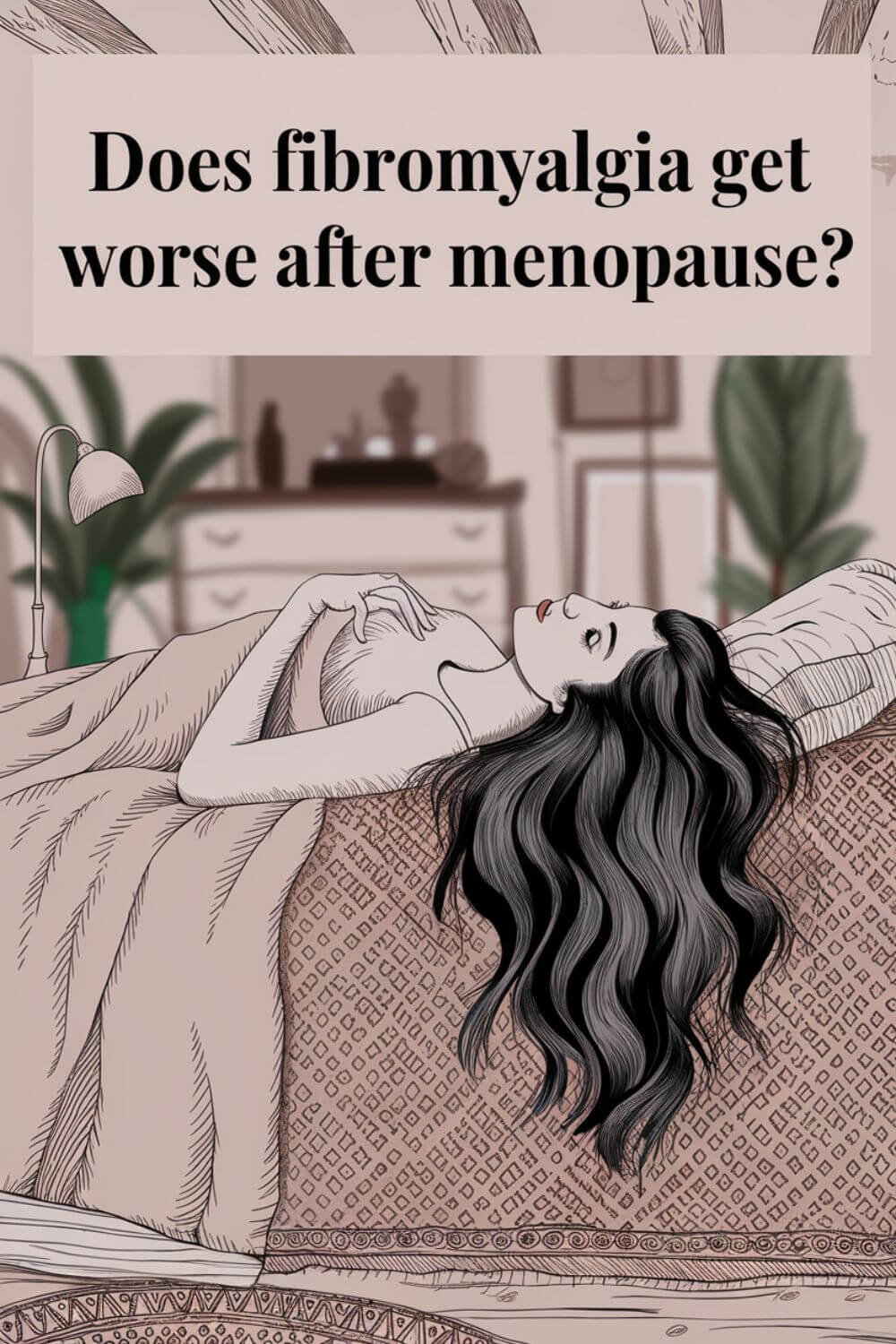
Navigating Menopause When Fibromyalgia Gets Worse
When my wife began experiencing the early stages of menopause, we couldn’t help but wonder how her chronic conditions would change. There was a sliver of hope that her endometriosis might ease as estrogen levels dropped. And while, to some extent, that hope was realized—the debilitating heavy bleeding lessened, and her pain became slightly more manageable—it didn’t come without a price. The same changes that brought relief to one condition seemed to fuel the fire of another: fibromyalgia.
The flare-ups became more frequent, more intense, and far less predictable. Tasks that used to take her minutes now stretched into hours, sometimes days, as her body struggled to recover from even the smallest effort. Her fatigue, once a steady hum in the background, turned into an overwhelming wave that drowned out even the most basic joys of daily life. And her pain—fibromyalgia’s cruel calling card—seemed to magnify in ways neither of us could have prepared for.
Watching her endure this has been heartbreaking. Fibromyalgia is not a condition you can “fix,” and menopause only adds layers of complexity that even doctors struggle to untangle. As a husband, it’s been a journey of helplessness and learning. I’ve seen firsthand how fibromyalgia doesn’t just attack her body; it wages war on her mind and spirit, amplifying self-doubt, frustration, and grief over what she can no longer do.
It’s a cruel paradox. The menopause that offers some relief from the pain of endometriosis seems to sharpen the blades of fibromyalgia, leaving her—and many other women—caught in a relentless tug-of-war. I often ask myself how much more she can bear, but then I see her strength. Even on her worst days, she refuses to give up, pushing through the pain, fatigue, and fog with a quiet determination that leaves me in awe.
To any woman facing this double-edged sword of menopause and fibromyalgia: you are not alone. Your struggles are valid, your pain is real, and your resilience is extraordinary. This stage of life may feel like an uphill climb, but you don’t have to face it in silence. There is strength in sharing your story, in finding solace in others who understand, and in knowing that every step forward—no matter how small—is a victory in itself.
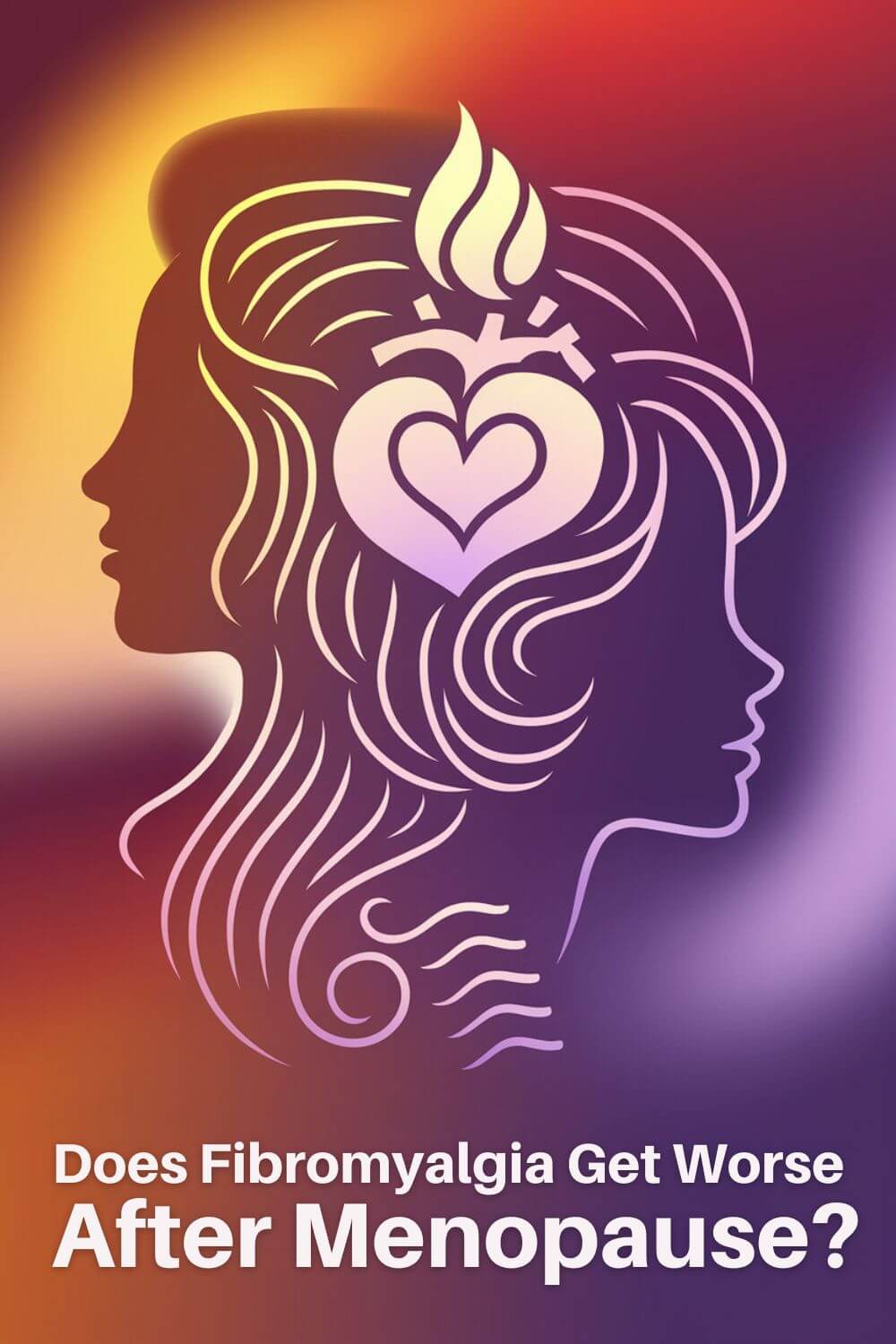
The Impact of Menopause on Fibromyalgia Flare-Ups
As my wife moved deeper into menopause, we began to notice patterns that were both alarming and frustrating. Her fibromyalgia, which had always been a challenge, seemed to evolve into something fiercer and more unpredictable. It wasn’t just the pain anymore—it was the overwhelming fatigue, the brain fog, and the unrelenting stiffness that made each day feel like a marathon she hadn’t signed up for.
Fibromyalgia is already a condition that robs women of control over their bodies, and menopause amplifies that loss. Hormonal shifts can intensify inflammation, disrupt sleep, and aggravate the hypersensitivity to pain that fibromyalgia sufferers already endure. For my wife, this meant sleepless nights spent tossing and turning, waking up more exhausted than when she went to bed, and struggling to find any kind of relief during the day.
I’ve often felt powerless watching her go through this. I see the frustration in her eyes when her body won’t cooperate, the sorrow when she thinks about the woman she used to be, and the fear of what might come next. As her partner, I do everything I can to make life a little easier—helping with chores, listening to her when she needs to vent, and reassuring her that she isn’t a burden. But no amount of love or support can erase the toll fibromyalgia takes, especially as it collides with menopause.
One of the hardest things to witness is how menopause seems to steal away the few good days she used to have. Before, there were moments when the pain subsided just enough for her to feel a spark of herself again. But now, those moments are fewer and further between. Menopause has shifted the landscape of her illness, and it’s a battle to find new ways to navigate it.
For women going through this, I want you to know: your pain is not in your head, and your struggles are not something you have to face alone. The changes you’re experiencing are real, and it’s okay to feel overwhelmed by them. What matters is that you keep fighting—not just for yourself but for the moments of peace, however small, that remind you of the strength you carry within. Menopause may complicate fibromyalgia, but it can never define you.
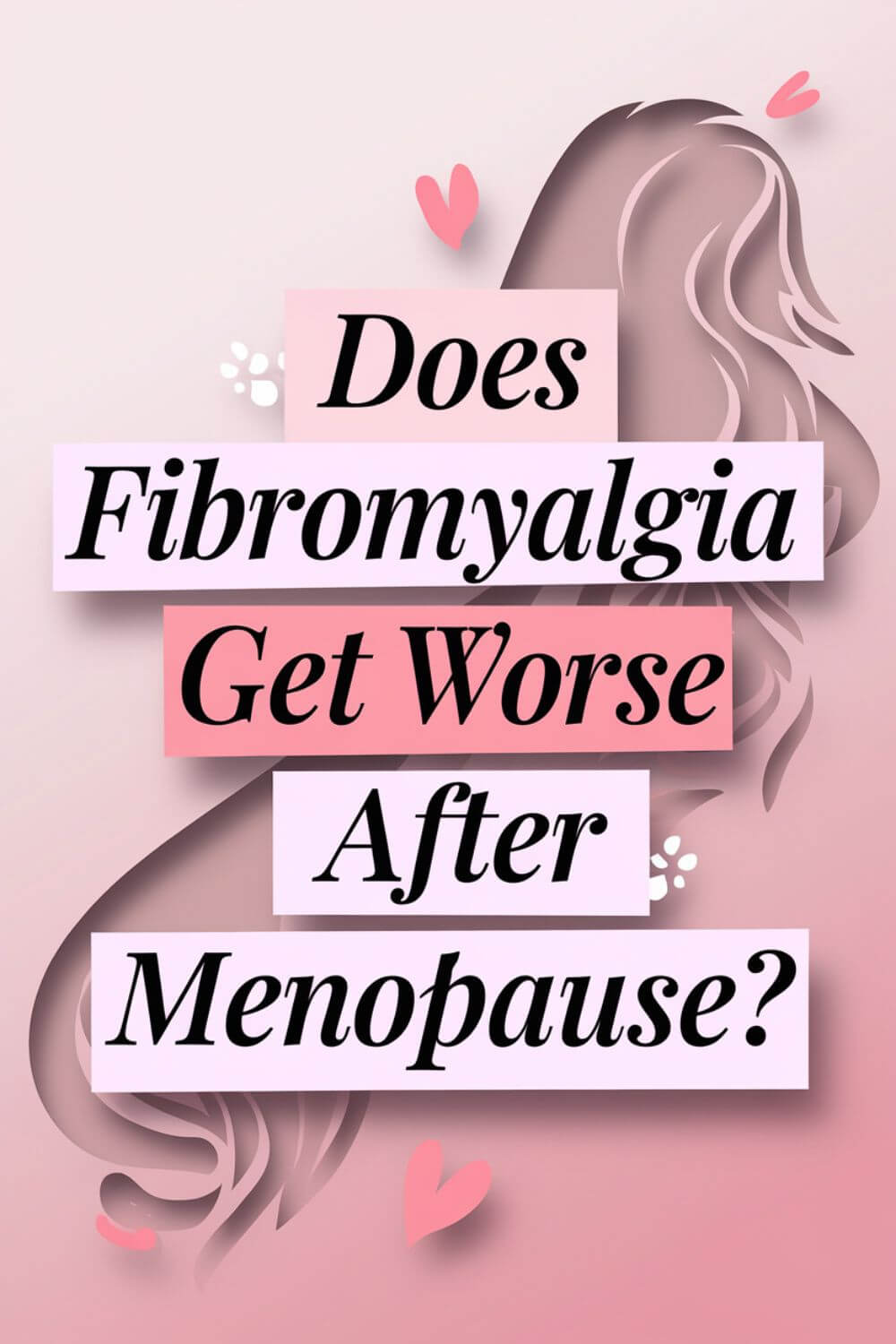
Understanding Hormonal Changes and Their Role in Fibromyalgia
The connection between hormonal changes and fibromyalgia has always been a complex puzzle, one that becomes even more tangled during menopause. Estrogen, often seen as the culprit behind endometriosis symptoms, plays a very different role in fibromyalgia. As estrogen levels drop during menopause, it can disrupt the body’s ability to regulate pain, often leading to intensified symptoms for women already living with fibromyalgia.
For my wife, this hormonal shift was like losing an invisible layer of protection. Though endometriosis pain had slightly eased, the trade-off came at a steep price. Her fibromyalgia symptoms became harsher, almost as if the condition was compensating for the quieter endometriosis. She would describe it as her body feeling “raw,” hypersensitive to every touch, movement, and even emotion.
What makes this phase so challenging is how unpredictable it can be. Hormones don’t decline in a straight line—they fluctuate wildly, leaving my wife (and so many other women) with symptoms that change not just month-to-month but sometimes day-to-day. There were times she’d feel a glimmer of relief, only to be blindsided by a sudden, crushing flare that left her bedridden.
As a man, I can only observe and try to understand what these hormonal changes are doing to her body. It’s humbling to realize just how much of her struggle is invisible to the outside world. Fibromyalgia during menopause doesn’t just amplify physical pain—it amplifies the emotional burden of feeling misunderstood, dismissed, or even forgotten.
If there’s one thing I’ve learned through this, it’s that hormonal changes aren’t just a medical issue—they’re a deeply personal battle that women endure in silence far too often. For those reading this, know that your experience is valid, and your pain isn’t something you have to justify to anyone.
Whether it’s seeking better medical care, advocating for your needs, or simply acknowledging the magnitude of what you’re going through, every step matters. You are seen, you are heard, and you are stronger than you know.

The Emotional Toll of Fibromyalgia and Menopause
Menopause brings a wave of changes, and when fibromyalgia is part of the equation, the emotional toll can be overwhelming. It’s not just about the physical pain or fatigue—it’s about the mental and emotional battles that come with feeling like your body is working against you. I’ve seen this firsthand with my wife, and as her partner, it’s impossible not to feel the weight of her struggles too.
Fibromyalgia doesn’t just drain energy; it drains hope. Add menopause to the mix, with its rollercoaster of hormones and unpredictable symptoms, and it’s a recipe for emotional exhaustion. For my wife, this has often meant battling feelings of helplessness, frustration, and even guilt. She worries about being a burden, about not being “herself” anymore, and about what the future holds.
There have been nights when she breaks down in tears, grieving the life she feels she’s lost. Menopause seems to magnify the things fibromyalgia already steals—mobility, independence, joy—and leaves women feeling stranded in a body that no longer feels familiar. Watching this happen to someone you love is heartbreaking, and it’s a constant reminder of how relentless these conditions can be.
As someone standing beside her, I’ve learned that emotional support is just as important as physical help. There are days when all I can do is listen, reassure her that her feelings are valid, and remind her that she is more than her illness. But even that doesn’t erase the pain of seeing someone you care about so deeply struggle with something so out of their control.
For women going through this, I want you to know that it’s okay to feel what you’re feeling. It’s okay to grieve, to get angry, to feel overwhelmed. You are facing a storm that most people can’t imagine, and the strength it takes to keep going is extraordinary. Surround yourself with people who understand, whether that’s your partner, friends, or a support group. And most importantly, give yourself grace—you are not defined by your struggles but by the courage it takes to face them every single day.
Your pain is real, your emotions are valid, and you don’t have to carry this alone. Let this stage of life remind you of your resilience and the power that comes from acknowledging your battles and continuing to fight through them.
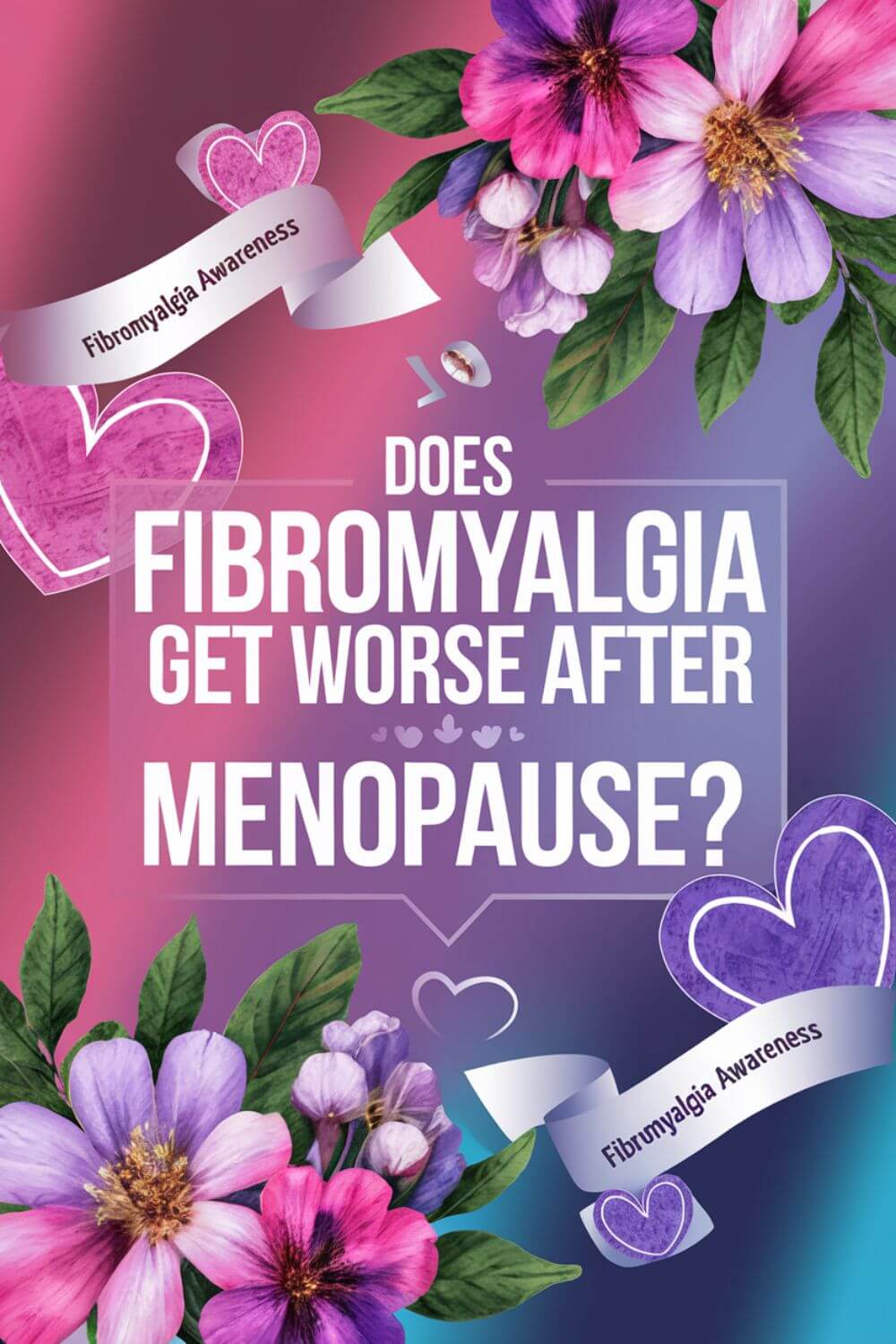
Coping Strategies for Women Facing Fibromyalgia and Menopause
Living with fibromyalgia is already a challenge, but adding menopause into the equation creates a unique set of struggles. The physical pain, the hormonal changes, and the emotional toll often leave women feeling overwhelmed and unsure where to turn. Over the years of supporting my wife through both conditions, I’ve learned a few strategies that can make the journey just a little more manageable.
One of the most important things I’ve seen is the value of pacing. Fibromyalgia demands constant negotiation with your energy levels, and menopause often drains what little reserves are left. My wife has had to learn to prioritize tasks, take frequent breaks, and listen to her body when it tells her enough is enough. It’s not about giving up on life; it’s about adapting to live within the limits fibromyalgia and menopause set.
Another critical piece is finding the right balance of treatments. For my wife, this has meant experimenting with different medications, supplements, and therapies to manage symptoms. Some strategies work better than others, and it’s often a process of trial and error. What’s been clear is that having a doctor who truly listens and understands the dual impact of fibromyalgia and menopause is essential.
Self-care is another cornerstone. Menopause often brings sleep disturbances, which only amplify fibromyalgia symptoms. My wife has found that creating a bedtime routine—avoiding screens, using calming scents, and practicing relaxation techniques—helps improve her rest, even if only slightly. Every small improvement matters when you’re fighting a battle on multiple fronts.
Perhaps most important is emotional support. Fibromyalgia and menopause can feel isolating, but having someone who truly understands what you’re going through can make all the difference. Whether it’s a partner, a friend, or a support group, knowing you’re not alone can provide strength on the hardest days.
To the women reading this, please know that your journey is valid. Fibromyalgia and menopause are battles you didn’t choose, but you’re still here, facing them with courage every day. Be patient with yourself, advocate for your needs, and remember that you don’t have to do this alone. You are stronger than you feel, braver than you know, and deserving of all the care and compassion this world can offer.
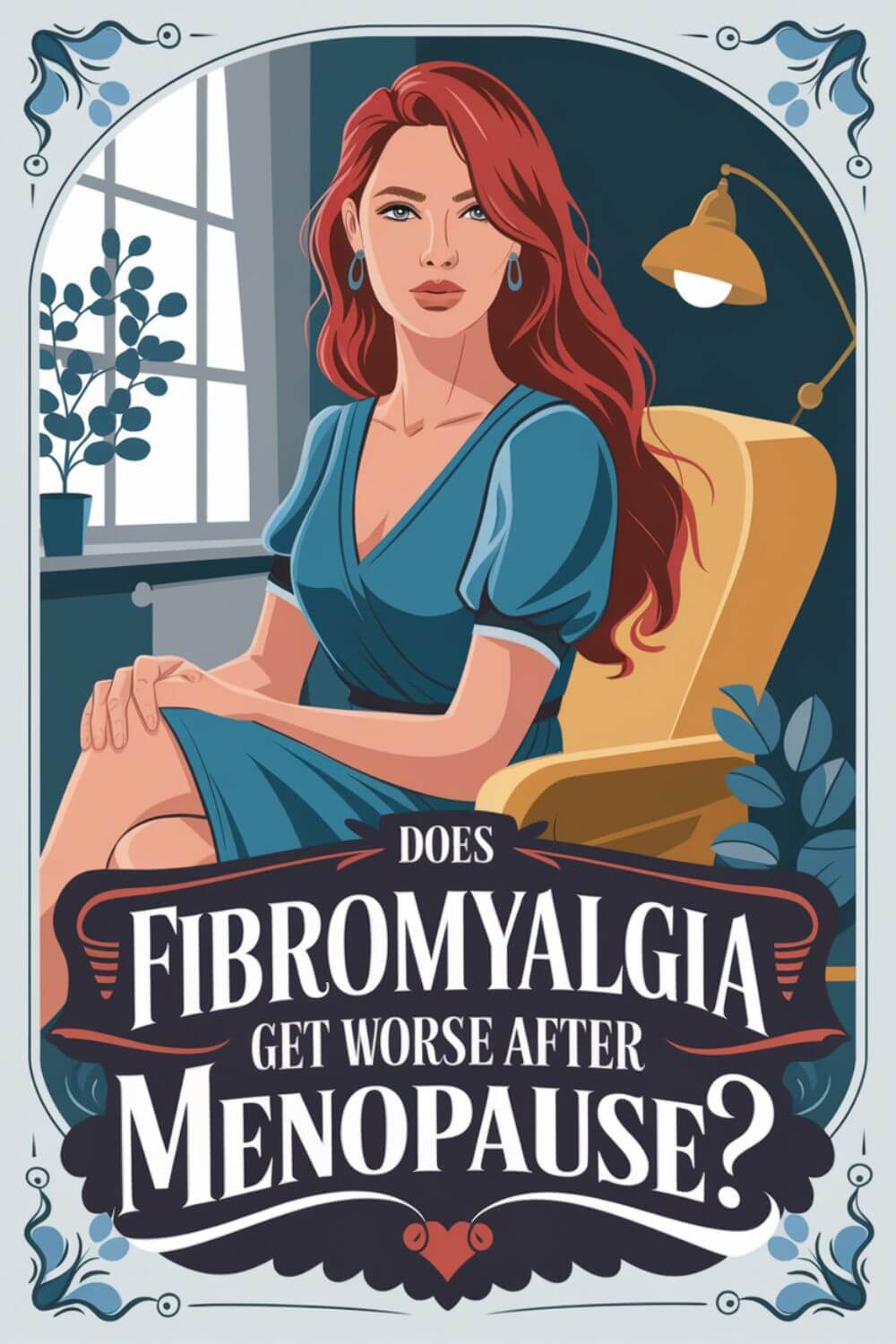
The Role of Stress in Worsening Fibromyalgia Symptoms During Menopause
Stress has a profound impact on fibromyalgia, often exacerbating its symptoms and making flare-ups more frequent and severe. During menopause, this connection becomes even more apparent as hormonal fluctuations amplify the body’s sensitivity to stress. For women already managing the chronic pain and fatigue of fibromyalgia, the added stress of menopausal changes can feel overwhelming.
In my wife’s experience, stress is one of the most significant triggers for her fibromyalgia flare-ups. Even minor stressors, like a disrupted routine or an unexpected deadline, can send her body into a tailspin of pain and exhaustion. Menopause has only heightened this sensitivity, as the hormonal shifts seem to lower her resilience to stress, both physically and emotionally.
Managing stress isn’t always straightforward, especially when you’re facing the physical challenges of fibromyalgia and the emotional toll of menopause. However, understanding the link between stress and symptoms can help women take steps to protect themselves. Stress reduction techniques, lifestyle adjustments, and support systems can all play a role in minimizing its impact.
Below, I’ll outline some key areas where stress and fibromyalgia intersect during menopause and provide actionable strategies for managing both.
Understanding the Stress Response in Fibromyalgia
Stress plays a unique and critical role in fibromyalgia. Unlike in a healthy individual, where stress may trigger temporary discomfort, in someone with fibromyalgia, the body’s stress response is amplified. This heightened sensitivity stems from the overactivity of the central nervous system, which processes even minor stressors as if they were significant threats.
For women navigating menopause, this response becomes even more pronounced due to fluctuating hormone levels, particularly the decrease in estrogen, which helps regulate pain and stress.
For my wife, this means that what might seem like a small issue to others—a sudden change in plans, a loud noise, or even an emotional conversation—can spiral into a full-blown flare-up. Her body reacts as though it’s under attack, amplifying her pain, fatigue, and mental fog. This isn’t something she can simply “push through.” Her body’s overreaction is involuntary, leaving her feeling exhausted and overwhelmed.
Understanding this connection has been a game-changer for us. By recognizing that stress is more than just a mental state—it’s a physical trigger—we’ve been able to take proactive steps to minimize its impact. Small adjustments, like creating a calming home environment or avoiding unnecessary conflicts, help create a buffer against the effects of stress.
For women experiencing this, understanding the science behind the stress response can provide a sense of validation and an opportunity to explore strategies that work for them personally.

Hormonal Fluctuations and Their Role in Stress Sensitivity
Menopause brings about significant hormonal shifts, and these changes can exacerbate fibromyalgia symptoms, particularly in response to stress. Estrogen, which naturally declines during menopause, plays a critical role in pain perception and stress regulation.
Lower levels of estrogen can make the body more susceptible to pain and less able to handle stress. Additionally, cortisol—the stress hormone—can become dysregulated, leading to prolonged periods of heightened stress sensitivity.
For my wife, menopause has made her fibromyalgia feel like an even bigger mountain to climb. The hormonal rollercoaster not only intensifies her physical symptoms but also takes a toll on her mental and emotional well-being. There are days when her body feels like it’s on high alert, making even the simplest of tasks seem insurmountable. These hormonal fluctuations often make her feel trapped in a cycle of stress, pain, and fatigue, with no clear way out.
Learning about the connection between hormones and fibromyalgia has been eye-opening. It has helped us approach her symptoms with more understanding and compassion.
While we can’t stop the hormonal changes, we can work to mitigate their effects. For women going through this, recognizing the role hormones play in stress sensitivity is crucial. This understanding can empower them to seek medical advice, explore hormone replacement therapies (if appropriate), or adopt lifestyle changes that support hormonal balance during menopause.
The Importance of Mindfulness and Relaxation Techniques
One of the most effective ways to combat the stress associated with fibromyalgia during menopause is through mindfulness and relaxation techniques. These practices help calm the overactive nervous system, reducing the body’s stress response and, in turn, alleviating some of the physical symptoms of fibromyalgia. For women already navigating menopause, these techniques can be a powerful tool for reclaiming some sense of control.
For my wife, mindfulness has become an essential part of her daily routine. Activities like guided meditation, deep breathing exercises, and gentle yoga provide her with moments of peace amidst the chaos of her symptoms.
At first, it was hard for her to embrace these practices—after all, when you’re in pain, sitting still and focusing on your breath can feel impossible. But with patience and practice, she’s found that even five minutes of mindful breathing can help reduce her pain and ease her stress.
Relaxation techniques aren’t a cure, but they offer a way to break the cycle of stress and pain. For women living with fibromyalgia during menopause, finding small, manageable ways to incorporate these practices into their routine can make a significant difference. Whether it’s starting the day with a short meditation, taking breaks to breathe deeply, or unwinding with a calming activity before bed, these moments of mindfulness can help create a sense of calm in an otherwise turbulent journey.
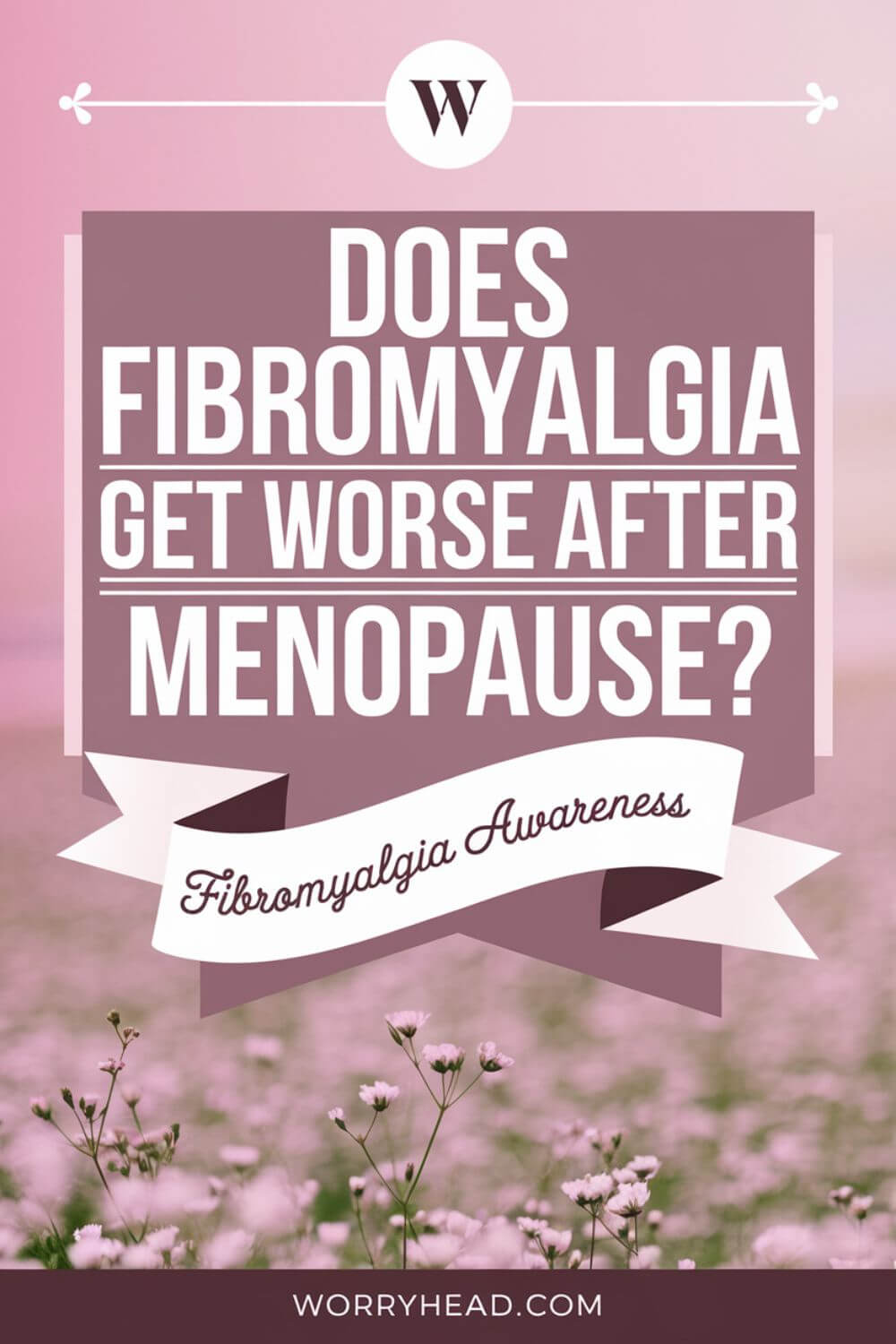
Building a Strong Support System
Living with fibromyalgia during menopause can be an isolating experience. The combination of chronic pain, fatigue, and hormonal changes often leaves women feeling disconnected from their loved ones and unsupported by the world around them. Having a strong support system can make an enormous difference, providing emotional relief, practical assistance, and a sense of belonging.
For my wife, our support system has been a lifeline. While I strive to be her rock, I’ve come to realize that she also needs the understanding of others who share similar experiences. Joining online communities and local support groups has allowed her to connect with women who truly understand what she’s going through. These connections have provided her with not only practical advice but also a sense of validation and encouragement.
Building a support system isn’t just about finding others to lean on—it’s about creating an environment of understanding and compassion.
For women living with fibromyalgia during menopause, this might mean opening up to family members about their struggles, seeking out a therapist who specializes in chronic illness, or even connecting with a trusted friend for regular check-ins. These relationships can offer a safe space to express emotions, share victories, and find reassurance that they’re not alone.
Practical Tips for Reducing Daily Stressors
Managing stress during menopause and fibromyalgia flare-ups often requires looking at the small, everyday stressors that add up over time. While big life changes might be out of control, there are practical steps women can take to create a sense of stability and reduce the triggers that worsen their symptoms.
For my wife, simplifying her daily routine has been key. She keeps a to-do list that prioritizes tasks, breaking them into manageable chunks so that she doesn’t feel overwhelmed. For example, instead of trying to clean the entire house in one day, she focuses on one small area at a time. This helps her conserve energy and reduces the stress of feeling unproductive.
Creating a calm environment is another strategy that’s worked well for her. We’ve worked together to organize our home in a way that minimizes clutter and distractions, making it easier for her to relax and recharge. Having dedicated spaces for rest, work, and relaxation has helped her feel more in control.
Other practical tips include meal prepping to reduce the stress of cooking on busy days, setting boundaries with people or activities that drain energy, and practicing self-compassion when things don’t go as planned. These small adjustments might seem insignificant on their own, but together, they create a foundation for managing stress and living more peacefully with fibromyalgia and menopause.
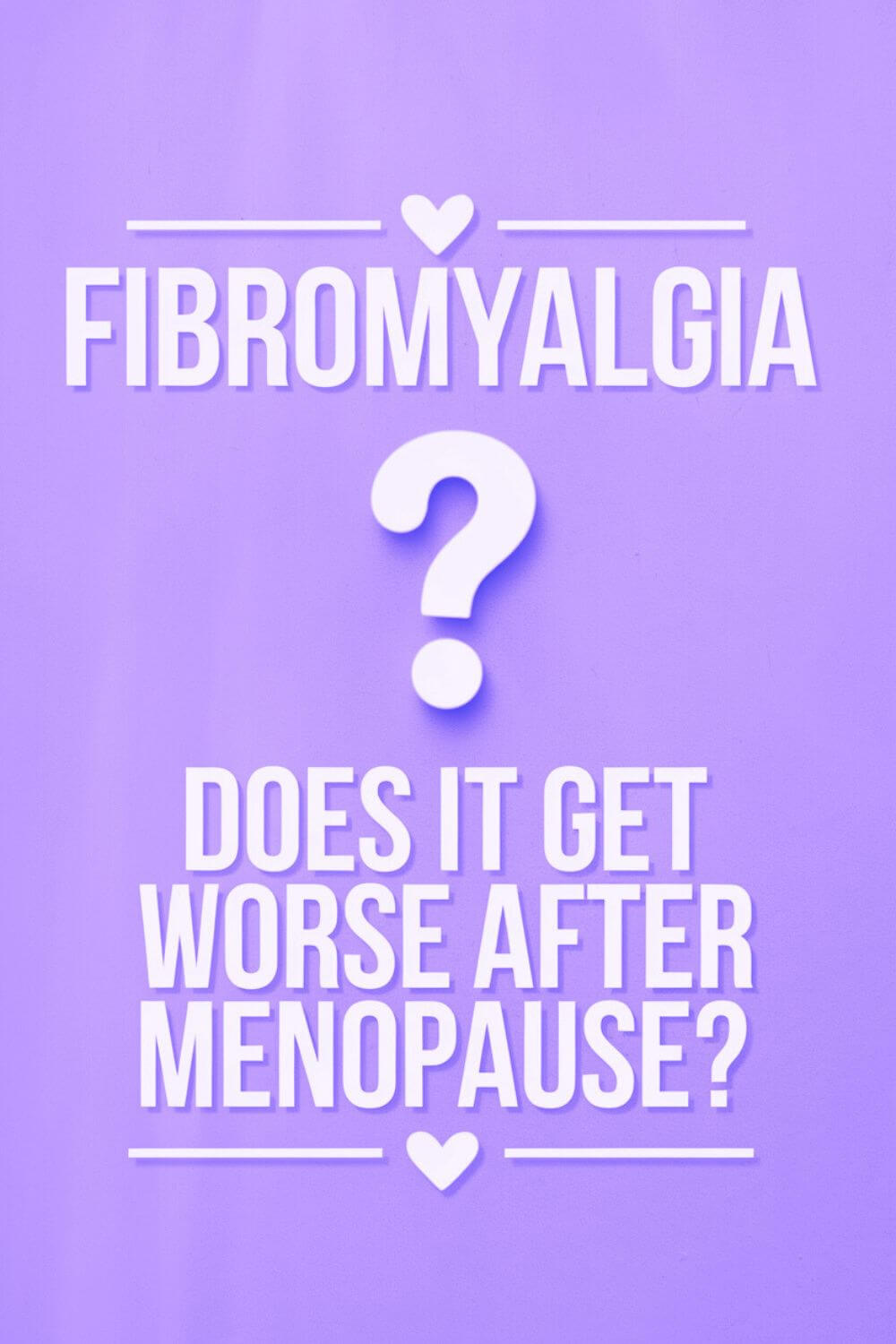
Finding Hope When Fibromyalgia Gets Worse After Menopause
Navigating fibromyalgia during menopause is an uphill battle, but it’s not one that has to be fought alone. While the pain, fatigue, and emotional toll can feel overwhelming, it’s important to remember that this journey also reveals incredible resilience and strength. Menopause may amplify the challenges of fibromyalgia, but it doesn’t define the women who face it head-on every day.
To all the women reading this, know that you are not alone. Whether you’re just beginning to notice changes or you’ve been struggling with intensified symptoms for a while, there is a community of people who see your strength and honor your fight. Your journey may be difficult, but it is also a testament to the courage it takes to face life’s most profound challenges with grace and determination.
For those supporting someone with fibromyalgia and menopause, your role is vital. Offering understanding, patience, and love can make an immeasurable difference in helping them navigate this stage of life. Every small act of kindness contributes to a foundation of strength and hope.
What are your thoughts or experiences with fibromyalgia during menopause? Share your journey in the comments below. I’d love to hear from you.
And don’t forget to grab your free copy of the Endo-Tool: Endometriosis for Men eBook to gain more knowledge about how to navigate chronic illness with understanding and empathy. Together, we can break the silence, support one another, and build a world where no one feels alone in their struggles.
Thank you for reading, and always remember—you are stronger than you think, braver than you feel, and deeply appreciated for the strength you show every single day. Keep moving forward; you are doing an incredible job.


About Me
Hi, I’m Lucjan! The reason why I decided to create this blog was my beautiful wife, who experienced a lot of pain in life, but also the lack of information about endometriosis and fibromyalgia for men…
